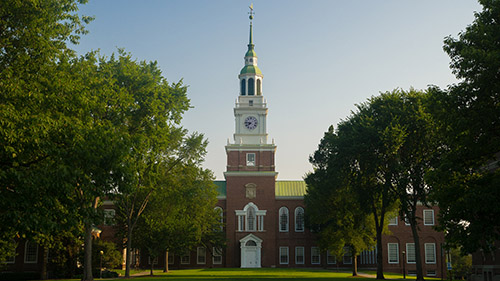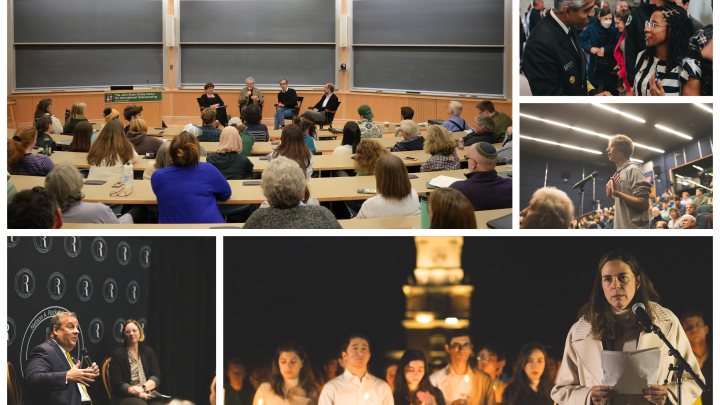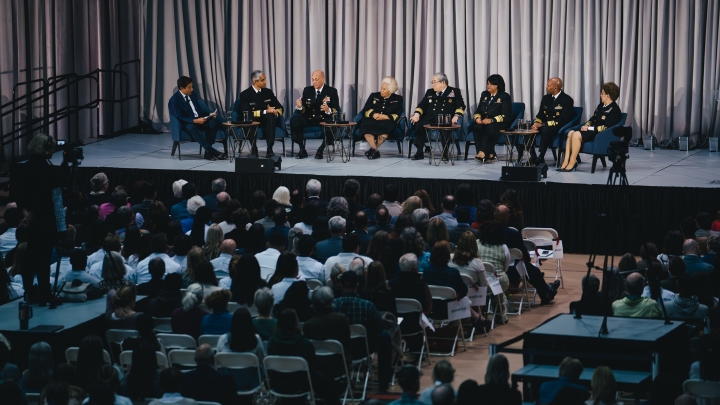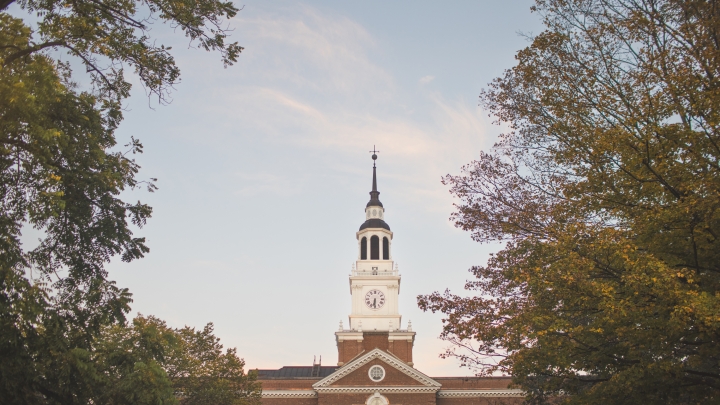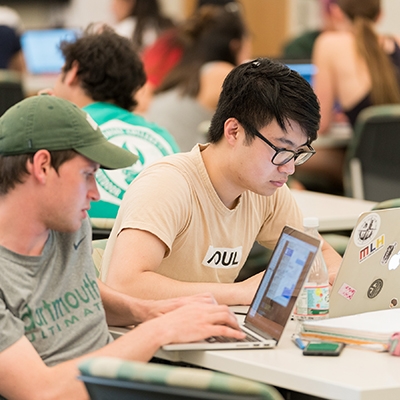
Because Dartmouth wants to ensure that students develop to their fullest potential, student life is supported in many ways. Accessible all year round, these resources are always available to students.
Dartmouth puts wellness in the foreground. From 24/7 mental health support for anyone in need, to utilizing our natural surroundings to grow an understanding of environmental wellness through outdoor activities, events, projects, and programs, students have access to a robust and inclusive variety of support structures throughout their time at Dartmouth. Academic, financial, occupational, physical, social, and spiritual wellness all come together to equip our students with the resources and skills to thrive at Dartmouth and beyond.
When it comes to getting flu shots or treating poison ivy and fevers, Dick's House, the on-campus health center, is there to provide inclusive, quality health care—even if that means connecting students to local hospitals for escalated situations, like receiving x-rays. Dartmouth's Health Service provides high-quality care and services for Dartmouth students and promotes the maintenance of a healthy lifestyle during college and in the years beyond.
Through the Office of Residential Life, Dartmouth assures that residential communities remain inclusive and that students commit to social responsibility. A place to practice leadership, students learn how to best approach their concerns and develop skills to prosper in unfamiliar systems and environments. Becoming a better person for the world through educating students on empowerment, responsibility, and information, students walk away with a better understanding of their personal identity. While students are assigned to one of six house systems, they are always welcome to participate in most of the other houses' events. The open campus fosters an ardent balance between house competitions and overall school spirit - because, in the end, all students here are Dartmouth students.
At Dartmouth, students also have a community beyond their house system. The Tucker Center, where religious faith is celebrated, welcomes everyone in hopes of helping students celebrate whatever their spirituality or beliefs may be. As a diverse community, Dartmouth understands the importance of religion and promotes a culture that does not discriminate, and instead, encourages compassion.

In addition to the advice students receive from their peers, all students have a faculty advisor with whom they meet to plan their academic path. Faculty advisors are specific to student interests. For example, students who indicate that they are interested in economics will have a faculty advisor who teaches in the economics department. Deciding on a potential major, which courses to take each term, and how students can spend their off-terms are all areas faculty advisors assist students with.
I was afraid to email professors about research positions because I'm a first-year student. My faculty advisor assured me that I shouldn't worry about it because the professors are pretty chill. By the end of our conversation, he offered me a position as a research assistant in his computational social affective neuroscience lab. —Maryam "Mia" Iqbal '21
With the Office of Pluralism and Leadership (OPAL), students receive consultation over experiences related to self-advocacy, finding one's community, and managing personal strengths to thrive in any environment. Located in the Collis Student Center, OPAL is available to provide counsel for underrepresented students.
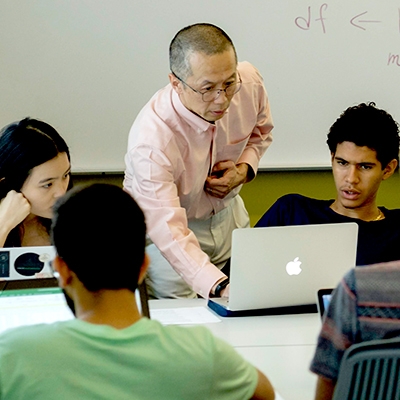
When students do not know which students resource to use, they can contact their undergraduate dean. While undergraduate deans have a particular specialty with discussing academics, such as students' academic progress, interests, and goals, they also guide students to appropriate resources. And throughout the term, undergraduate deans frequently send out weekly emails to keep students up to date with internship opportunities, helpful study resources, and times they are available to meet with students.
Dartmouth is an academic institution, but a residential one. The health and well-being of students is imperative to their success in the classroom and beyond. Between academic support services and student life resources, Dartmouth makes sure that their students are happy and healthy. On campus, starting to feel better begins with an appointment.



